Crime scene at The Maltings
Three people were admitted to hospital and a further person treated as an out patient. The police identified 131 people who could have come into contact with the nerve agent but none have so far shown any symptoms.
Police are examining 5,000 hours of CCTV footage and 1,350 items that have been seized.
It is one of the largest and most complex investigations undertaken by British counter terrorism policing.
The Russians strongly deny any involvement.
A further incident happened on 30 June with two people falling ill in Amesbury – Charlie Rowley, 45, and Dawn Sturgess, 44. Sadly, Dawn later died as a result of the poisoning.
Nine businesses were closed as a result of the incident and businesses near to the cordons saw footfall reduce between 60-80%. Footfall across the city centre was down by an average of 15% in April 2018.
Sergei Skripal is a retired Russian military intelligence colonel who was sentenced in 2006 to 13 years in prison, accused of spying for Britain. He was a double agent for the UK’s intelligence services (MI6) during the 1990s and early 2000s.
In December 2004, he was arrested by the FSB and later tried and convicted of high treason and sentenced to 13 years in prison. In July 2010 he was one of four prisoners that Moscow swapped for their spies in the US.
In 2011 he moved to Salisbury and bought a house in Christie Miller Road.
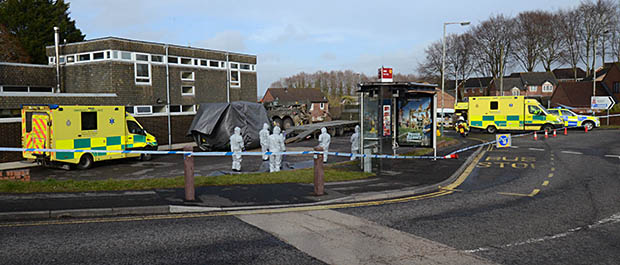
3 March
Yulia Skripal arrived at Heathrow from Russia at 2.40pm on Saturday 3 March
4 March
9.15am Sergei Skripal’s car is seen in the area of London Road, Churchill Way North and Wilton Road.
1.30pm Skripal’s car is seen being driven down Devizes Road, towards the town centre.
1.40pm Sergei and Yulia park on the top of Sainsbury’s car park in The Maltings and visit the Bishop’s Mill pub before going to Zizzi restaurant at about 2.20pm. They stay at the restaurant until 3.35pm.
At 4:15pm the emergency services are called by a member of the public to a bench in the Maltings where Sergei and Yulia are slumped in an “extremely serious” condition.
An air ambulance landed in the central car park. At 5.10pm, it took off, taking Yulia to Salisbury district hospital. Sergei was taken by ambulance.
Wiltshire police made contact with the counter-terrorism network.
5 March
Sergei and Yulia are publicly identified. Wiltshire Police declare a “major incident”.
6 March
Scotland Yard announced its counter-terrorism police would take charge of the investigation.
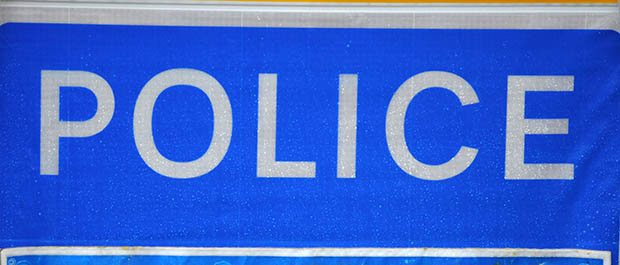
7 March
Metropolitan Police Assistant Commissioner Mark Rowley, head of national counter-terror policing, revealed that Sergei and Yulia were poisoned with a nerve agent. He also reveals that a police officer was also contaminated.
Paul Cosford, Medical Director and Director of Health Protection at public Health England (PHE) said: “Based on current evidence the risk to the wider public is low and it is likely that, had any member of the public been exposed to the substance, they would have presented with symptoms by now. However, anyone who was in the area and is concerned because they feel unwell, should dial 111 or 999 depending on the severity of their symptoms.”
Public Health England’s statements about the Salisbury incident
8 March
Home Secretary Amber Rudd said the use of a nerve agent in the UK was a “brazen and reckless act” of attempted murder “in the most cruel and public way”. She says a police officer, one of the first responders to the incident in Salisbury, is seriously ill in hospital. later chairs a meeting of the National Security Council and Theresa May calls a Cobra meeting.
9 March
Over 100 military personnel deployed to Salisbury to help with the investigation and decontamination.
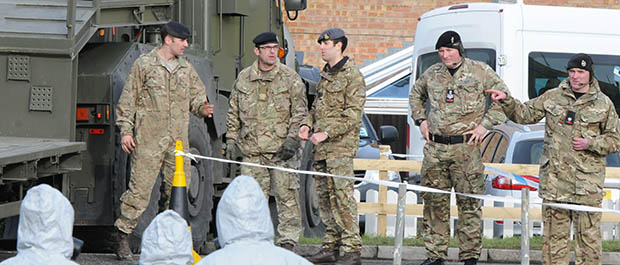
Amber Rudd visits Salisbury. The Home Secretary visited the police cordon in the Maltings, where she talked with Wiltshire Police temporary chief constable Kier Pritchard, the local Conservative MP John Glen and business owners. She also visited Detective Sergeant Nick Bailey in Salisbury District Hospital.
Asked about the condition of Mr Skripal, his daughter and DS Nick Bailey, Ms Rudd said: “Still very serious for the two people who were indeed the subject of this outrageous attack and for the police officer, I understand it’s still serious, although he’s still conversing and engaging.”
London Road Cemetery cordoned off and a forensic tent is placed over the grave of Sergei’s son Alexandr. The grave of his wife Lyudmila is in the same cemetery.
10 March
Ambulance that took Sergei to hospital removed by army from Salisbury ambulance station.
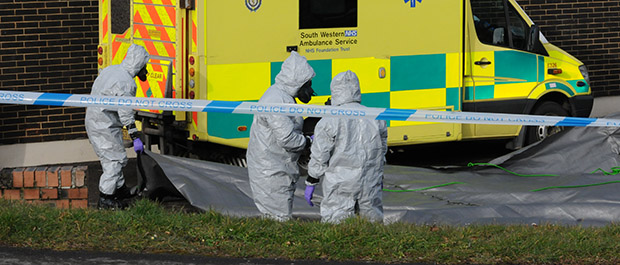
11 March
Dr Jenny Harries, Deputy Medical Director at PHE said: “Rigorous scientific analysis has been ongoing and we have learnt that there has been some limited contamination in both The Mill pub and Zizzi restaurant in Salisbury. Anyone who visited The Mill pub or Zizzi restaurant, where the 2 affected individuals were, can be reassured that this limited exposure will not have harmed their health to date. However, there may be a very small health risk associated with repeated contact with belongings which may have been contaminated by this substance. We therefore recommend that a precautionary approach is taken and advise people to clean the clothes they were wearing and any possessions they had with them.” The public were advised to wash clothes and wipe items with baby wipes but to wait on further instruction for dry clean items.
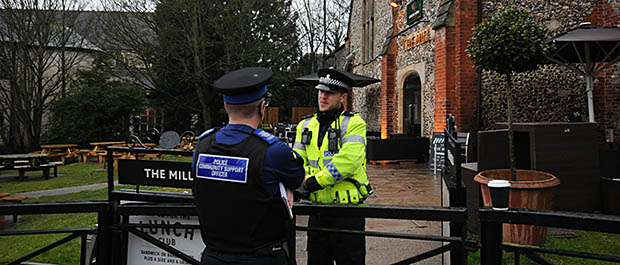
12 March
Prime Minister Theresa May said to the Commons: “It is now clear that Mr Skripal and his daughter were poisoned with a military-grade nerve agent of a type developed by Russia.”
“This is part of a group of nerve agents known as ‘Novichok’.”
“Based on the positive identification of this chemical agent by world-leading experts at the Defence Science and Technology Laboratory at Porton Down; our knowledge that Russia has previously produced this agent and would still be capable of doing so; Russia’s record of conducting state-sponsored assassinations; and our assessment that Russia views some defectors as legitimate targets for assassinations; the Government has concluded that it is highly likely that Russia was responsible for the act against Sergei and Yulia Skripal.”
“Mr Speaker, there are therefore only two plausible explanations for what happened in Salisbury on the 4th of March.
“Either this was a direct act by the Russian State against our country.
“Or the Russian government lost control of this potentially catastrophically damaging nerve agent and allowed it to get into the hands of others.
“The Foreign Secretary has summoned the Russian Ambassador to the Foreign and Commonwealth Office and asked him to explain which of these two possibilities it is – and therefore to account for how this Russian-produced nerve agent could have been deployed in Salisbury against Mr Skripal and his daughter.
“My Rt Hon Friend has stated to the Ambassador that the Russian Federation must immediately provide full and complete disclosure of the Novichok programme to the Organisation for the Prohibition of Chemical Weapons.
“And he has requested the Russian Government’s response by the end of tomorrow.”
PHE advise that the clothing of anyone who was at Zizzis or the Mill should be washed and personal items like phones wiped as a precaution.
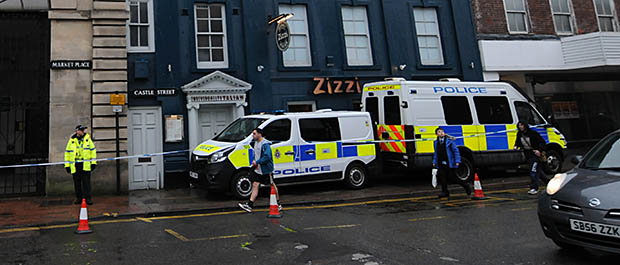
13 March
Police focus on Mr Skripal’s red BMW and appeal for any witnesses who had seen it between 1pm and 1.45pm on Sunday 4 March.
14 March
With the deadline passed and no satisfactory explanation from Russia, the Prime Minister told parliament she would be expelling 23 Russian diplomats within a week. There will also be a partial boycott of the World Cup, with no members of the Royal Family or UK ministers attending. Full PM Commons Statement on Salisbury incident response.
Donald Tusk, President of the European Council, tweeted: “I express my full solidarity with PM @theresa_may in the face of the brutal attack inspired, most likely, by Moscow. I’m ready to put the issue on next week’s #EUCO agenda.”
In Gillingham, Dorset, a street was sealed off to allow the army to secure an Ashley Wood breakdown truck which was used to recover Skripal’s BMW.
15 March
Russian announces there will be tit-for-tat expulsions of diplomats
France, Germany and USA announce joint statement condemning the attack.
Troops removed a vehicle from Alderholt, Dorset, where Wiltshire Police Detective Sergeant Nick Bailey lives.
Prime Minister visits Salisbury to thank the emergency services, doctors, nurses, and investigation teams who have led the response to the attack. She also visited DS Nick Bailey in hospital and spent some time with him privately.
Defence Secretary Gavin Williamson announced a £48 million investment in a new Chemical Weapons Defence Centre to maintain UK’s cutting-edge in chemical analysis and defence.
The vehicle used to collect Yulia from the airport is removed from Larkhill.
16 March
Foreign Secretary Boris Johnson says it is “overwhelmingly likely” that Vladimir Putin ordered the use of a nerve agent in the attack on Sergei Skripal.
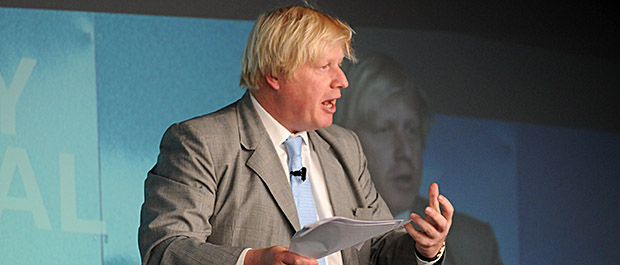
17 March
Russia expels 23 UK diplomats, closes the British council in Moscow and cancels permission for a consulate in St Petersberg
19 March
Independent chemical weapons experts brought in from the Organisation for the Prohibition of Chemical Weapons (OPCW) in The Hague, Netherlands. They took samples of the nerve agent, including blood samples from the Skripals. Government press release: Independent technical experts from chemical weapons watchdog to arrive in UK.
A vehicle used by Mr Skripal’s friend to pick up Yulia from the airport on 3 March was removed from Durrington.
20 March
In an interview with Deutsche Welle Boris Johnson was asked about how he knew the Novichok was from Russia. He said: “Let me be clear with you … When I look at the evidence, I mean the people from Porton Down, the laboratory … they were absolutely categorical and I asked the guy myself, I said, “Are you sure?” And he said there’s no doubt.”
21 March
Wiltshire Police tweeted: “You’ll see reduced police activity at the cemetery on London Road, Salisbury, as the investigation continues. The cordon has been reduced & other than a small continuing police presence, the cemetery can be accessed in line with normal opening hours. “
22 March
A second police officer (an unnamed uniformed constable) is known to have been contaminated. He is understood to have developed minor symptoms, including skin irritation after coming into contact with an object that possibly had “secondary contamination”. He is treated as an outpatient at Salisbury hospital.
British Ambassador to Russia Dr Laurie Bristow briefed the international diplomatic community in Moscow on the UK government’s response to the Salisbury attack. British Ambassador to Russia briefing on the Salisbury attack.
European Council conclusions on the Salisbury attack: “The European Council condemns in the strongest possible terms the recent attack in Salisbury, expresses its deepest sympathies to all whose lives have been threatened and lends its support to the ongoing investigation. It agrees with the United Kingdom government’s assessment that it is highly likely that the Russian Federation is responsible and that there is no plausible alternative explanation. We stand in unqualified solidarity with the United Kingdom in the face of this grave challenge to our shared security.” Full European Council report.
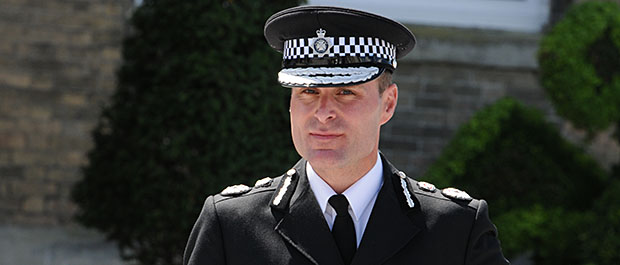
Detective Sergeant Nick Bailey released from hospital. A statement was read on his behalf by Chief Constable Kier Pritchard thanking everyone for their support and asking for privacy. He said “I recognise that ‘normal’ life for me will probably never be the same – and Sarah and I now need to focus on finding a new normal for us and for our children.”
Court of Protection ruled that blood samples could be taken from the Skripals by the OPCW.
UK Foreign Office tweeted: “Analysis by world-leading experts at the Defence Science and Technology Laboratory at Porton Down made clear that this was a military-grade Novichok nerve agent produced in Russia. Porton Down is OPCW-accredited and designated laboratory.”
24 March
Free parking in Old George Mall and Salisbury’s council car parks starts.
Bench where Skripals were found is removed.
27 March
25 countries have now expelled Russian diplomats.
Representatives from local and national agencies attend Wiltshire Council’s cabinet meeting in the City Hall to provide an update on the recovery plan for Salisbury.
£1m for Salisbury businesses agreed by the Government to help with recovery.
28 March
Deputy Assistant Commissioner Dean Haydon, Senior National Coordinator for Counter Terrorism Policing said: “At this point in our investigation, we believe the Skripals first came into contact with the nerve agent from their front door. We are therefore focusing much of our efforts in and around their address.”
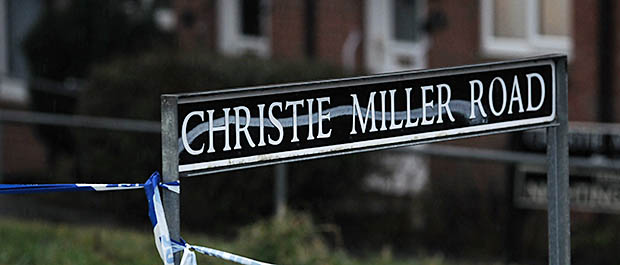
The following sites are handed back to Wiltshire Police by the national investigation: The Maltings, The Ashley Wood compound, London Road Cemetery.
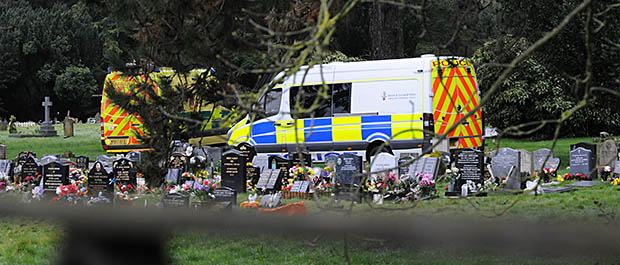
29 March
NHS England announce: “With only two patients now remaining in hospital, we are pleased to be able to inform you that Yulia Skripal is improving rapidly and is no longer in a critical condition. Her condition is now stable.” Full NHS England statement.
3 April
DSTL tweets: “This chemical identity of the nerve agent is one of four factors used by the Government to attribute the use of chemical weapons in Salisbury to Russia. Our experts have precisely identified the nerve agent as a Novichok. It is not, and has never been, our responsibility to confirm the source of the agent.”
4 April
At the request of Russia, the Organisation for the Prohibition of Chemical Weapons (OPCW) Executive Council met. OPCW meeting documents.
Russia lost a vote at the Organisation for the Prohibition of Chemical Weapons calling for a joint-investigation into the Salisbury nerve agent attack.
Gary Aitkenhead, chief executive of the Defence Science and Technology Laboratory (DSTL) at Porton Down, told Sky News they were not yet able to prove it was made in Russia.
He said: “We were able to identify it as novichok, to identify that it was military-grade nerve agent.
“We have not identified the precise source, but we have provided the scientific info to Government who have then used a number of other sources to piece together the conclusions you have come to.”
It emerged that the UK Foreign Office deleted its tweet of 22 March. They said Dr Bristow’s briefing to international diplomats on 22 March was “tweeted in real time” by the UK embassy’s Twitter account and had been “amplified” by the Foreign Office account to “explain what happened in Salisbury to as wide an audience as possible”.
A spokesperson said: “One of the tweets was truncated and did not accurately report our Ambassador’s words. We have removed this tweet.
“None of this changes the fact that it is our assessment that Russia was responsible for this brazen and reckless act and, as the international community agrees, there is no other plausible explanation.
“No other country has a combination of the capability, the intent, and the motive to carry out such an act.”
5 April
Yulia Skripal makes her first public statement: “I woke up over a week ago now and am glad to say my strength is growing daily. I am grateful for the interest in me and for the many messages of goodwill that I have received.
“I have many people to thank for my recovery and would especially like to mention the people of Salisbury that came to my aid when my father and I were incapacitated. Further than that, I would like to thank the staff at Salisbury District Hospital for their care and professionalism.
“I am sure you appreciate that the entire episode is somewhat disorientating, and I hope that you’ll respect my privacy and that of my family during the period of my convalescence.”
6 April
Dr Christine Blanshard, medical director at Salisbury District Hospital, said of Sergei Skripal in a statement: “He is responding well to treatment, improving rapidly and is no longer in a critical condition.”
Viktoria Skripal, cousin to Yulia Skripal refused a visa to come to Britain.
Discovery that Sergei Skripals pets died because they hadn’t has access to food and water. Both guinea pigs were found dead while the cat needed to be put down as it was severely malnourished.
7 April
The Russian embassy requests a meeting with Foreign Secretary Boris Johnson
9 April
Yulia Skripal released from hospital to a secure location
10 April
In a statement, Salisbury District Hospital’s medical director Christine Blanshard said: “In the four weeks since the incident in the city centre, both have received round the clock care from our clinicians, who’ve been able to draw in advice and support from world leading experts in this field.
“We’ve been keeping you updated on the condition of Yulia and Sergei, whilst respecting the right to privacy to which they – and all our patients – are entitled.
“While I won’t go into great detail about the treatment we’ve been providing, I will say that nerve agents work by attaching themselves to a particular enzyme in the body which then stops the nerves from working properly.
“This results in symptoms such as sickness, hallucinations and confusion.
“Our job in treating the patients has been to stabilise them– ensuring that the patients could breathe and that blood could continue to circulate.
“We then needed to use a variety of different drugs to support the patients until they could create more enzymes to replace those affected by the poisoning.
“We also used specialised decontamination techniques to remove any residual toxins.”
11 April
MET Police issue statement on behalf of Yulia Skripal. “I am safe and feeling better as time goes by, but I am not yet strong enough to give a full interview to the media, as I one day hope to do. Until that time, I want to stress that no one speaks for me, or for my father, but ourselves. I thank my cousin Viktoria for her concern for us, but ask that she does not visit me or try to contact me for the time being.” Full statement.
12 April
The results of analysis by the OPCW designated laboratories of environmental and biomedical samples collected by the OPCW team confirm the findings of the United Kingdom relating to the identity of the toxic chemical that was used in Salisbury and severely injured three people. Report summary
13 April
The Government announced that a very small amount of the Novichok nerve agent was used in the attack and it was in liquid form.
Work to decontaminate affected sites is beginning, but it will take many months and involve around 190 members of the armed forces. Nine sites have been identified:part of the Maltings shopping centre where the former Russian spy Skripal and his daughter were discovered, Zizzi restaurant and the Mill pub which they visited that day, and their home. The home of DS Nick Bailey, also needs decontaminating.
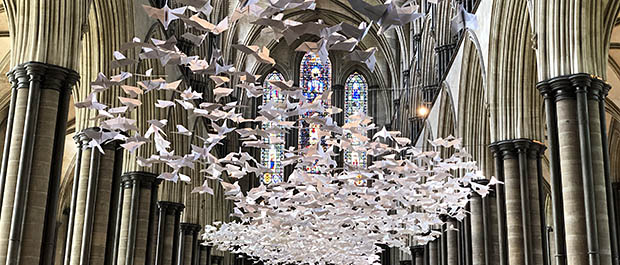
12 May
Les Colombes by multimedia artist Michael Pendry features a flock of around 2,500 white origami doves that ‘fly’ the length of Salisbury Cathedral nave. The installation opened to the public on Saturday 12 May and runs until 22 July. It runs alongside a community City of Doves project to extend this exhibition throughout Salisbury.
18 May
Sergei Skripal released from Salisbury District Hospital. Statement from hospital.
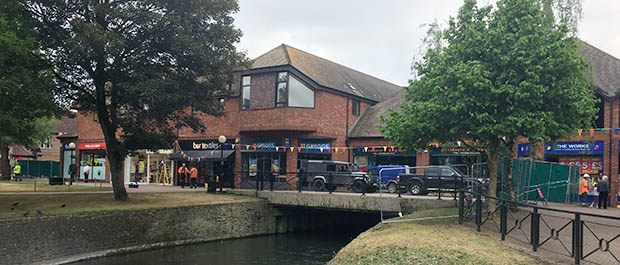
21 May
Decontamination work at The Maltings now complete. Shoppers will be able to return at the weekend. Government statement.
23 May
Yulia gives an exclusive interview to Reuters saying “The fact that a nerve agent was used to do this is shocking.” “My life has been turned upside down.” “We are so lucky to have both survived this attempted assassination. Our recovery has been slow and extremely painful” “I don’t want to describe the details but the clinical treatment was invasive, painful and depressing.”
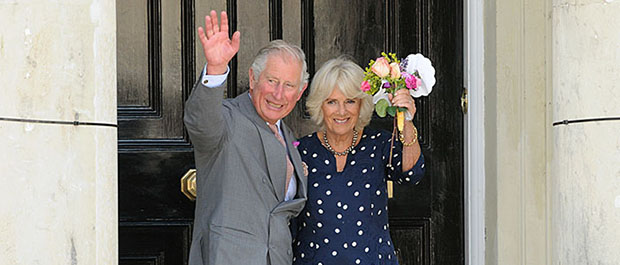
22 June
The Prince of Wales and The Duchess of Cornwall visited Salisbury on Friday 22 June to support the recovery programme underway in the city. View photos of the royal visit.
28 June
Bourne Hill offices handed back
30 June
Charlie Rowley, 45, and Dawn Sturgess, 44, were found collapsed in a flat in Amesbury. They were taken to Salisbury District Hospital. Dawn was taken ill first, then a few hours later Charlie was too.
4 July
Police declared a major incident after it was suspected that two people might have been exposed to an unknown substance. Porton Down were given samples to test.
5 July
Police announce that the couple were poisoned with novichok.
The couple are in a critical condition.
Police have set up two dedicated phone numbers for anyone with concerns relating to this incident. The dedicated numbers are Freephone 0800 092 0410 or 0207 158 0124 if you cannot dial Freephone numbers or are calling from abroad. These numbers are available from 8am to 8pm daily.
Professor Dame Sally Davies, chief medical officer for England, said the risk to the general public “remains low”.
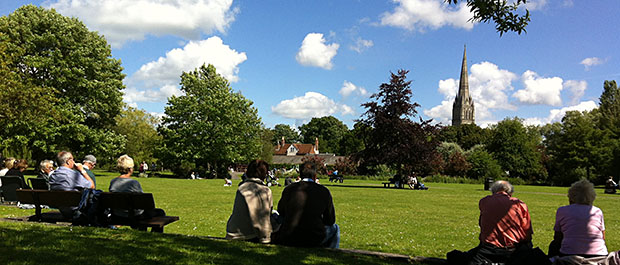
A number of sites in the Amesbury and Salisbury areas that it’s believed the two visited in the period before they fell ill have been cordoned off:
Queen Elizabeth Gardens, Salisbury, and the Town Path
John Baker House, Rollestone Street, Salisbury, and a bin outside
A property on Muggleton Road, Amesbury
Boots the Chemist, Stonehenge Walk, Amesbury
Amesbury Baptist Centre on Butterfield Drive, Amesbury
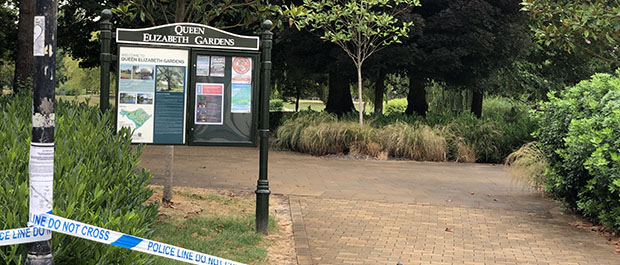
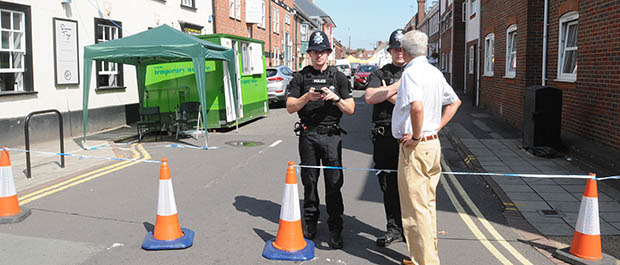
5 July
A senior Government source told the Press Association this development would raise “serious questions of the oversight and choosing of the (clean-up) sites and how this was handled”.
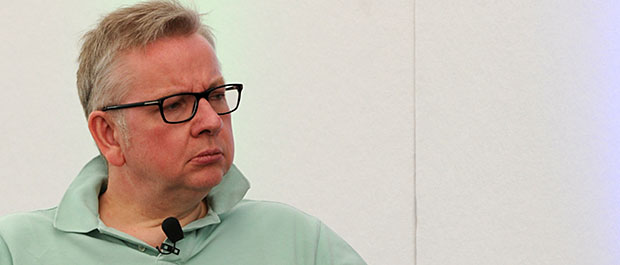
The clean-up was carried out by Defra and overseen by Environment Secretary Michael Gove under the guidance of the Home Office, according to a source.
Home Secretary Sajid Javid chaired a meeting of the Government’s Cobra emergencies committee.
7 July
A police officer attended Great Western Hospital in Swindon for medical advice in connection with the ongoing incident in Amesbury. The individual was taken to Salisbury District Hospital for appropriate specialist tests which showed that they were not suffering from the effects of nerve agent poisoning.
8 July
Home Secretary Sajid Javid visited Salisbury and Amesbury. He tweeted: “Today I visited Salisbury and Amesbury to thank dedicated first responders & meet local businesses and residents. I experienced an overwhelming feeling of the community coming together. They have impressed the whole country and shown the area is open for business.”
Dawn Sturgess died in Salisbury hospital. She leaves behind three children. Statement from Kier Pritchard.
Prime Minister Theresa May said she was “appalled and shocked” by the death.
She added: “Police and security officials are working urgently to establish the facts of this incident, which is now being investigated as a murder.
“The government is committed to providing full support to the local community as it deals with this tragedy.”
9 July
Public meeting in Amesbury. Statements from the panel.
Charlie Rowley regains consciousness. Hospital say he is in a critical but stable condition.
10 July
Tribute released from the family of Dawn Sturgess
Police able to speak to Charlie Rowley
13 July
Counter terrorism detectives investigating the contamination of two people by the nerve agent Novichok believe they have found the source of the deadly substance. “On Wednesday, 11 July, a small bottle was recovered during searches of Charlie Rowley’s house in Amesbury. It was taken to the Defence, Science and Technology Laboratory (DSTL) at Porton Down, Wiltshire, for tests. Following those tests, scientists have now confirmed to us that the substance contained within the bottle is Novichok.” MET police statement.
18 July
Fingertip searches of Elizabeth Gardens begin
20 July
Charlie Rowley released from hospital in Salisbury. Lorna Wilkinson, Director of Nursing at Salisbury District Hospital said “I am pleased to confirm that earlier today, Charlie Rowley was discharged from hospital. Charlie has been through an appalling experience most of us could never imagine.” Full statement
24 August
Queen Elizabeth Gardens handed back to the public
25 August
Charlie Rowley re-admitted to hospital after going temporarily blind
25 August
Charlie Rowley re-admitted to hospital with meningitis
4 September
OPCW statement released: “The results of the analysis by the OPCW designated laboratories of environmental and biomedical samples collected by the OPCW team confirm the findings of the United Kingdom relating to the identity of the toxic chemical that intoxicated two individuals in Amesbury and resulted in one fatality.” Full statement
5 September
Counter-terrorism police release images of two suspects in connection with Salisbury attack. Full statement
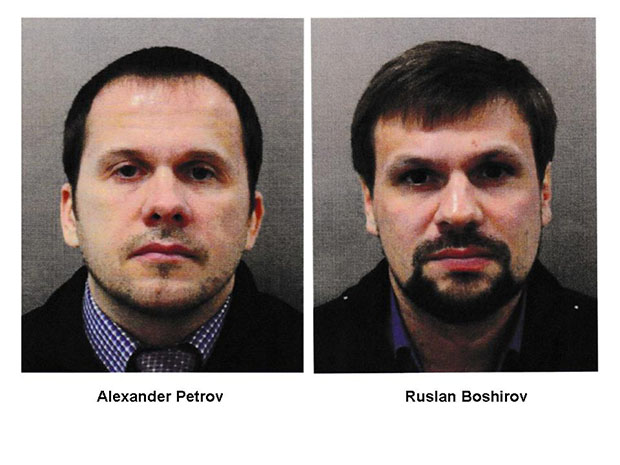
19 September
Defra has given Zizzi restaurant the all clear. The site has now been handed over to Wiltshire Council, who have in turn passed it back to the owners to begin refurbishment.
26 September
Skripal Suspect Boshirov identified by the Bellingcat investigative website as GRU Colonel Anatoliy Chepiga
8 October
The name of the second suspect in the Salisbury case is named by the Bellingcat investigative website as Alexander Mishkin.
12 October
Boots in Amesbury declared safe
17 February, 2019
Large Russian flag was seen hanging from scaffolding at Salisbury Cathedral. It was swiftly removed by staff and the stunt widely condemned.